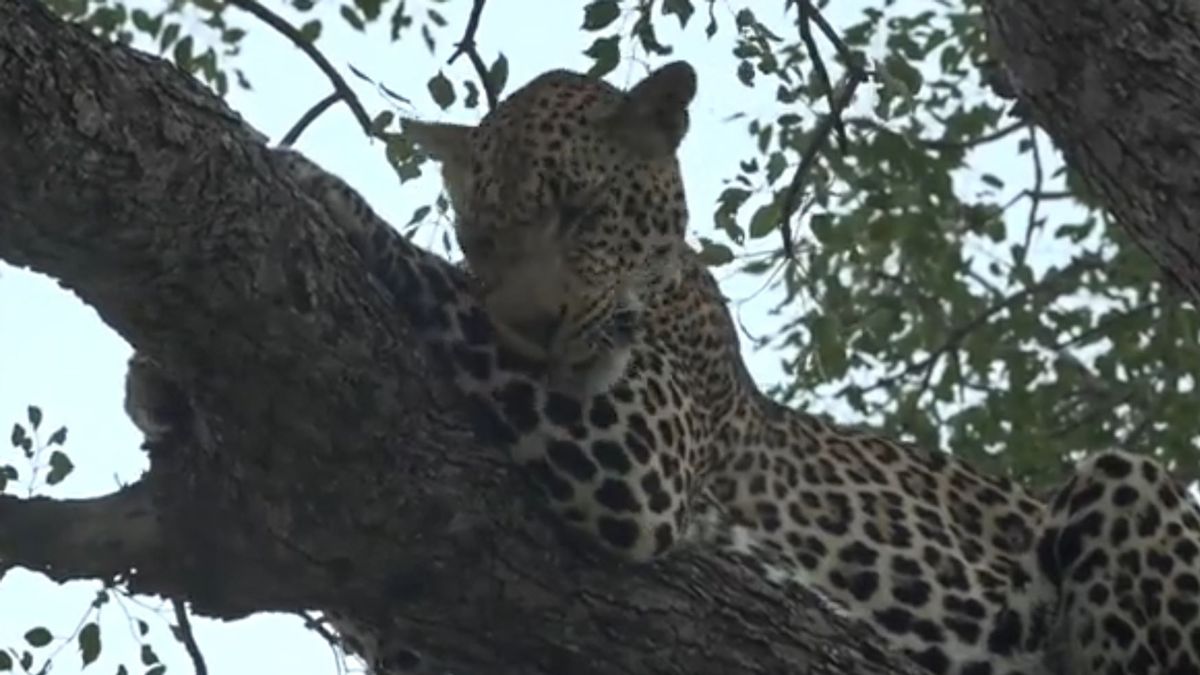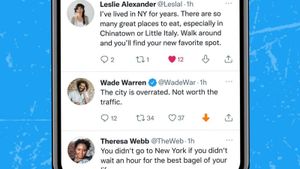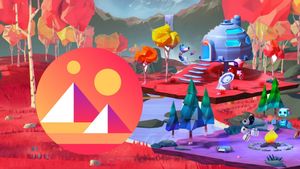JAKARTA - Tlalamba, a four-year-old leopard, has accomplished a lot in his short life. She was the queen of her mother's old territory, then gave birth to two children and, so far. It is also the most wanted animal in its reserve especially among buyers of new projects selling non-fungible tokens (NFT) to raise money for conservation.
NFT is a form of crypto asset that exploded in popularity last year. All kinds of digital objects - from art to videos and even tweets - can be bought and sold as NFT, which uses a unique digital signature to ensure the object is unique.
Now, WildEarth, a wildlife streaming service, is printing NFTs associated with 25 leading animals like Tlalamba at the Djuma Game Reserve in South Africa.
Shoppers will get special access to images, videos, and information about creatures like Tlalamba through the app, where they can also talk to other NFT owners. They even got voting rights on behalf of the Tlalamba children, and got the first chance for their future NFT.
Forty percent of the proceeds from the sale of the NFT will go to animal habitat rangers, and around $16.000 has been raised for the Djuma reserve through more than 1.000 sales so far. Each NFT currently costs around 200 US dollars.
Graham Wallington, co-founder of WildEarth, said the venture allowed fans to gain a sense of caring for the animals they love. Meanwhile, it also offers a potential, reliable, and low-impact new revenue stream for conservation globally.
"If we don't create the necessary economic incentives to conserve wildlife, it won't happen," he said. He also added that current conservation revenues, namely through hunting and tourism, are making animals that have been harmed, their habitats, or have proven to be massively unreliable during the pandemic.
"We have to find solutions that allow people at home to conserve nature in the wild," Wallington said.
SEE ALSO:
Even tourism can be dangerous if the nature reserve accommodates too many people, adds Djuma nature reserve owner Jurie Moolman. Djuma has now closed its commercial lodges.
"We are trying to tread the earth lighter," he continued. He also added that initiatives such as WildEarth and the NFT program allow them to continue to share Djumas with people everywhere, while also preserving their habitat.
But NFTs need to be traded on the secondary market, providing ongoing royalties to habitat maintainers, in order for them to become a reliable revenue stream.
Wallington remains focused on expansion, hoping to apply for asylum in the country's south, home to a penguin colony, and Kenya's Maasai Mara is next.
"We have plans to scale this, in our roadmap, to all conservation areas around the world," he said.
The English, Chinese, Japanese, Arabic, and French versions are automatically generated by the AI. So there may still be inaccuracies in translating, please always see Indonesian as our main language. (system supported by DigitalSiber.id)
















